|
|
|
 |
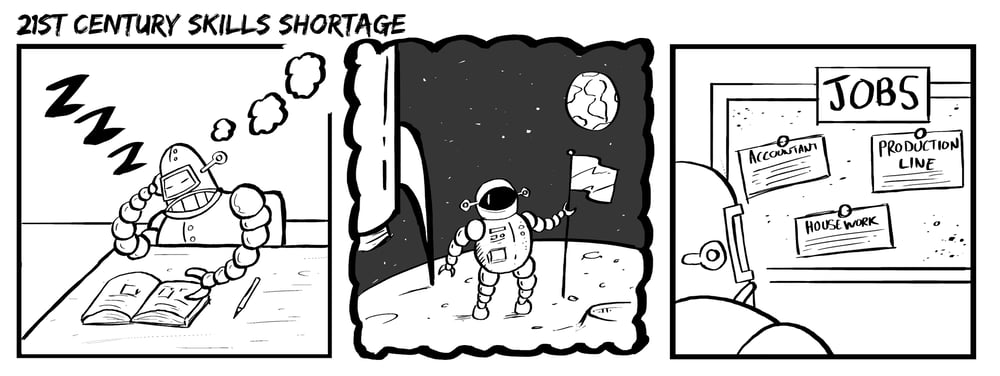
|
|
In this month's X Report, we look at job creation versus job education, the African EdTech Ecosystem and recent M&A activity. Each month, we will share a snapshot of key trends, showcase the stars of today and tomorrow, provide a little food for thought as well as mergers, acquisitions and fundraising.
|
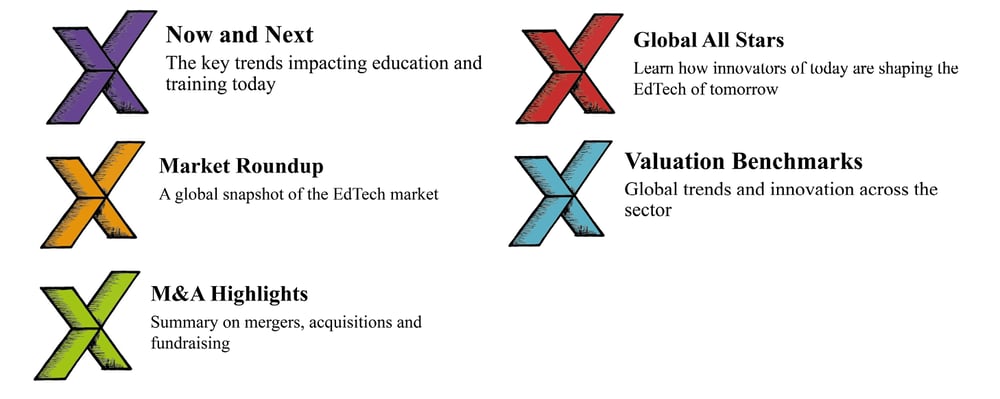 |
 |
 |
|
When I Grow Up, I Want To Be...
In the current evolving workplace, this new wave of tech disruption is centred around artificial intelligence and deep learning: machines using data to train themselves and make intelligent decisions. Moreover, innovation in AI networks could result in the machines having human capabilities by 2060. Robots will start interacting with humans and are expected to count for 90% of robots in the workplace by 2025. With this rapid change and investment in the workplace, we are going to see more change in vocational and professional training. This response is in the wake of the demand for companies to address the skills gap and develop the right talent. The looming $10 trillion skills gap and massive job displacement will bring the need to retrain more than one billion workers in the next ten years.
Last month at the World Economic Forum, the future of work and the skills required dominated the discussion. Many initiatives were created, including the Reskilling Revolution which aims to reskill one billion people by 2030 by providing better jobs, education and skills. It will look to contribute to future-proofing companies and workforce which in turn will deliver benefits to the economy and society for future generations.
As more cognitive decisions are increasingly being handed to machines, there is a growing concern on the impact and risks for government, business and people. More recently, initiatives are moving towards better private-public partnerships with new projects looking at leveraging relevant data to identify intervention points critical for preparing a future workforce; curating upskilling and reskilling programmes as well as developing common standards and certificates around new skills.
However, the growing demand for new skills as well as the highlighting of new opportunities and roles created does not seem to be relayed to those currently in education. The OECD recently shared a report that a teenager’s career expectations are being narrowed to a limited range of jobs. The survey, which consisted of 47% boys and 53% of girls from 41 countries, determined that they expect to work in one of just ten popular jobs by 2030. The narrowing of expectations increased by 8% since a similar report in 2000. Andreas Schleicher commented that “the survey show[s] that too many teenagers are ignoring or are unaware of new types of jobs that are emerging, particularly as the result of digitalisation”. Traditional roles found in 19th/20th century, before the era of social media and technologies like AI, are still at the forefront of young people’s imagination. Veterinarians, teachers, police officers and doctors, for example, continue to be at the forefront of career options.
The range of career aspirations did increase in countries with stronger, more established vocational training courses. The OECD shared the example of Germany and Switzerland where fewer than four in ten young people expressed interest in just ten jobs. This is compared to Indonesia where 52% of girls and 42% of boys expect one of just three careers: business managers, teachers and doctors or armed forces respectively.
Could it be that the focus has been too much towards job creation rather than job education? While steps have been taken to create the right jobs and skills for the future workplace, it can be argued that little has been down to inform people of this change. Education and the curricula are inertia to demands in work. With those in education today entering the workforce in 2030, perhaps now is the time to reflect on how we should be advertising the skills to those in education.
|
 |
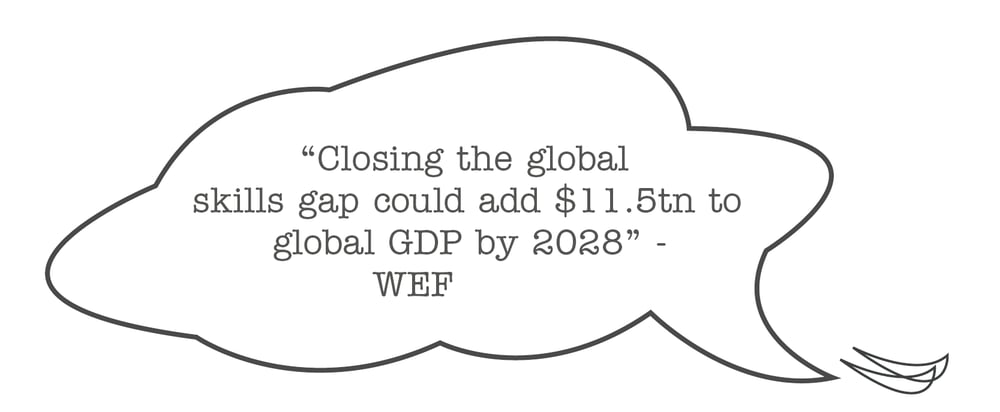 |
 |
 |
|
Increasing Access to STEAM Education in South Africa
During EdTechXAfrica 2019 Ecosystem Events, Founder of CRSP DSGN, Nthato Moagi won the EdTechX Johannesburg competition and then went on to triumph over the 27 other startups who pitched in the final; placing bronze in the 2019 Global Startup Super League competition.
Since then, CRSP DSGN has gone on to achieve overwhelming progress - setting up a non-profit foundation as well as piloting new robotics and coding curriculum that will be rolled out nationally in South Africa in the next few years. We recently caught up with Nthato for a recent EdTechX Editors Pick feature to discuss the importance of developing more fully-fledged end-to-end STEAM solutions for the 21st century-focused classroom, in the developing world.
Nthato stressed the importance of sparking the curiosity of the next generation of STEAM innovators and how providing them access to affordable quality educational STEAM resources can equip them with a growth mindset. He shared that encouraging new ways of learning and STEAM innovation in South Africa is needed now more than ever.
Currently, South Africa is ranked 137th out of 139 countries for the overall quality of its education system, with the same ranking for the quality of its Maths and Science education in the World Economic Forum’s 2016 Global Competitiveness Index. Furthermore, Nthato explained that more than 87% of public schools lacked access to quality educational resources that may be used to facilitate engaging STEAM education.
In developing the CRSP ROBO solution to help address these educational system concerns, he also hopes that it will inspire and motivate other incumbents in the EdTech space to aim for more affordable price points. We wish CRSP DSGN success and looked forward to seeing what is next for them as they continue to increase accessibility and aim to ultimately achieve widespread adoption of 21st century learning in the developing world.
|
 |
 |
 |
 |
 |
 |
 |
 |
 |
 |
 |
 |
 |
 |
 |
 |
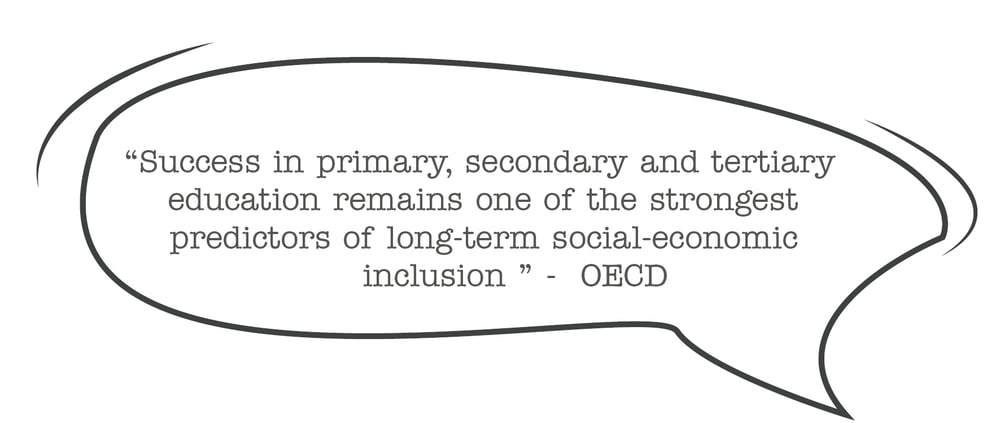 |
 |
 |
| M&A Activity > |
|
|
|
| Significant Fundraising Activity > |
|
|
 |
 |
|
Africa currently contributes less than 5% of global education M&A and fundraising, but the continent represents a unique opportunity for education providers as about 40% of the population is under the age of 15 – the youngest population in the world.
It then makes sense that for the last 5 years, M&A activity has been concentrated in the K12 and Higher Education sectors. A clear majority (65%) of fundraising has occurred in the K12 sector. Key players include Curro Holdings and ADvTECH, both of which have raised multiple funding rounds and built a network of schools and colleges through acquisitions.
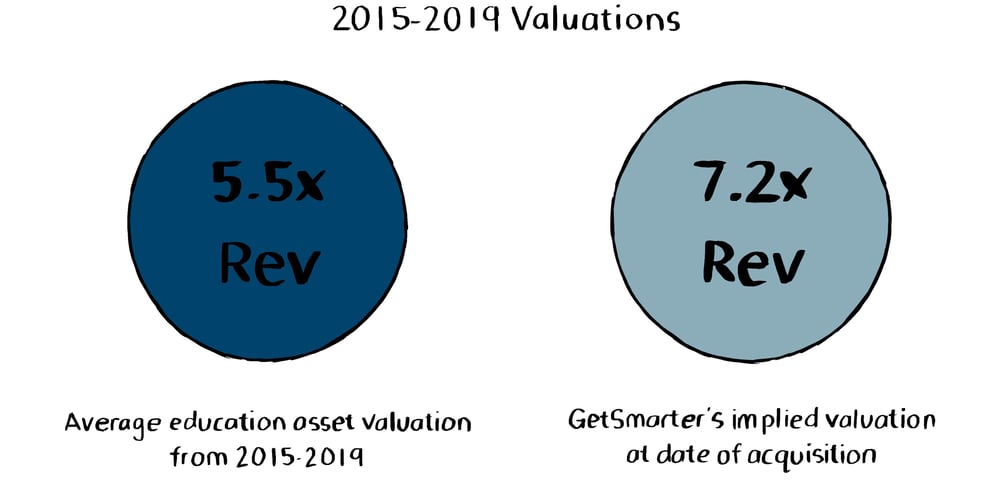
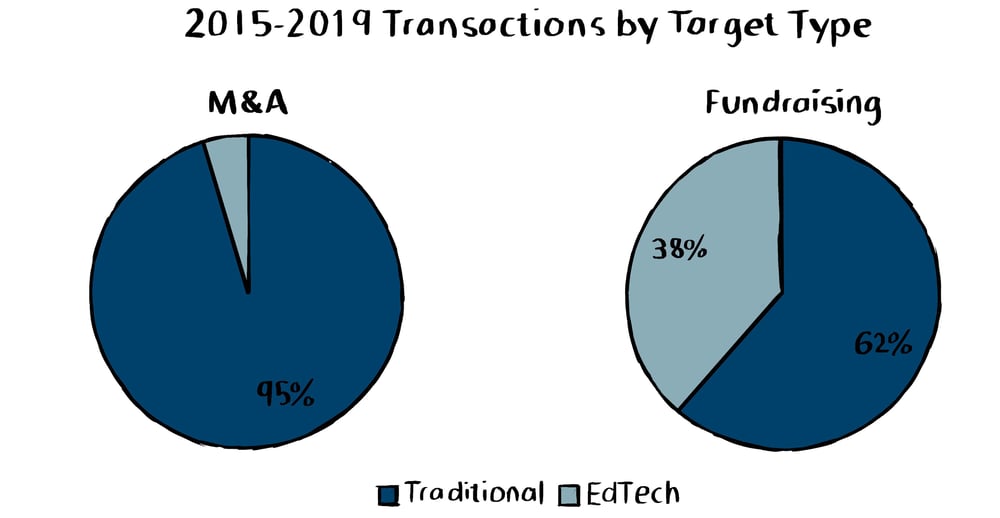
A key challenge faced in Africa is the limited technological infrastructure and internet access in rural areas, resulting in a much slower adoption of EdTech. 2U however surprised the market in 2017 by choosing a South African online education provider (GetSmarter) as its first acquisition at a cost of $123m. 2U indicated that GetSmarter’s wide range of online short courses and high-profile partners sparked their interest, achieving an impressive valuation above historical averages.
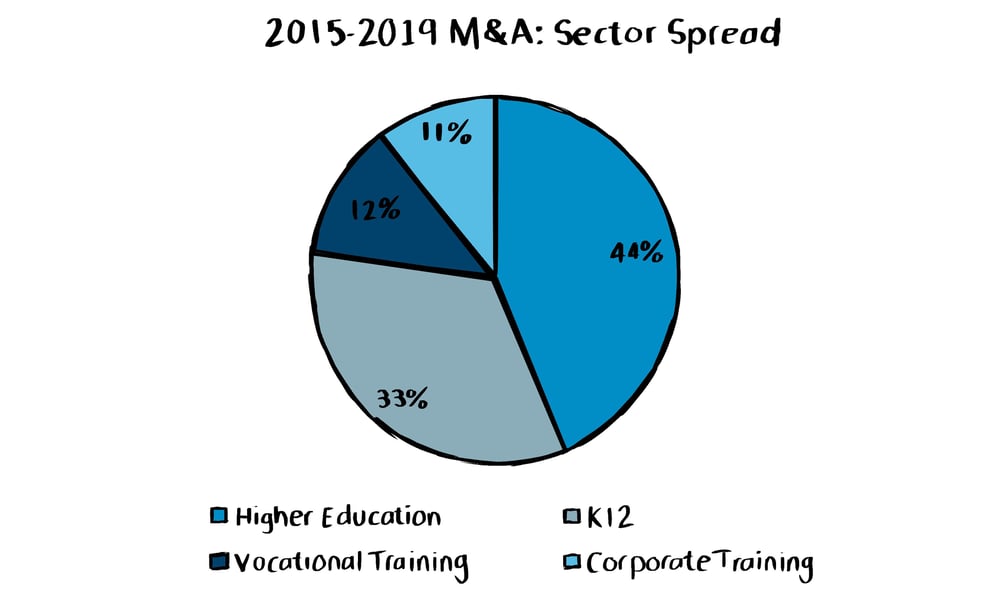
Another promising sign is the growth of EdTech fundraising as startups emerge across the continent. An example of this is Ubongo, a Tanzania-based EdTech startup that received $75,000 in seed funding from Pearson in 2015 and recently went on to win the Next Billion EdTech prize for impacting education in low income and emerging economies. Other successful startups that have received funding include uLesson, an application-based home education kit for students, and Eneza Education, a provider of mobile technology-based education. Key trends include mobile phone-driven education delivery and educational platforms that offer downloading of programs to be used offline, as these solutions reduce reliance on computer equipment and high-speed internet connectivity.
There is significant demand for education at scale, particularly for low cost K12 education. Technology offers a viable solution but needs to be adapted to be truly effective. Successful African EdTech companies are set to become increasingly valuable as the rest of the world looks to harness Africa’s potential.
|
 |
 |
|
|
|
|
|
|
|